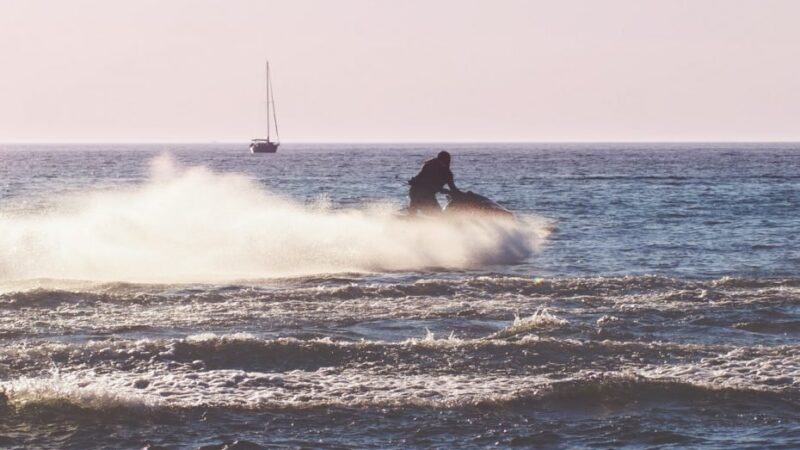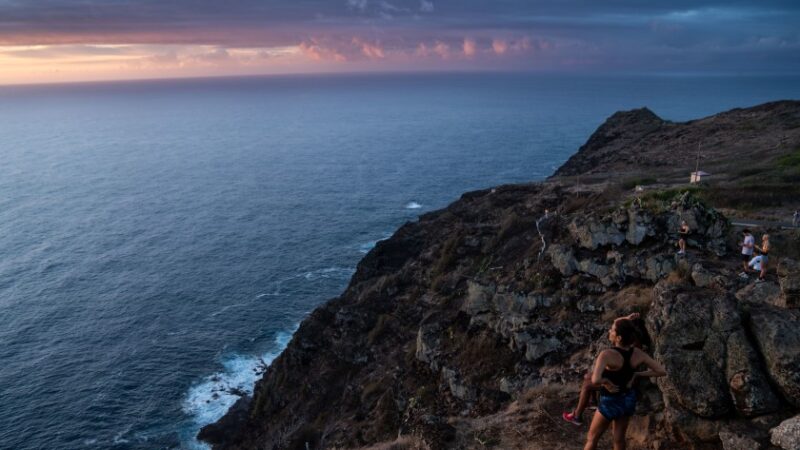The view from a Lake Placid boat dock, flanked by lush green lawns and Cypress trees, was serene on a recent weekday morning until a speed boat appeared from around a bend and cut slowly across the scenic waterway, leaving behind a wake that rolled ominously to shore.
Meanwhile, not 10 miles up the road, lawyers representing lakeside homeowners were in a Guadalupe County courtroom arguing against a lake dewatering plan that’s caused turbulence of its own.
The Guadalupe-Blanco River Authority (GBRA) announced in August it planned to drain the four reservoirs it manages in order to eliminate the safety risk caused by failing dams that formed the lakes nearly a century ago. By Wednesday evening, the homeowners who sought a restraining order to halt the draining had prevailed, at least for now.
But the threat looms for Pat McElhinney, a Seguin native who built the boat dock overlooking Lake Placid and other docks in the Pecan Cove neighborhood. He is just one of many who live and work along the Guadalupe River basin and who fear draining the lakes will drain them of their property values, their livelihoods, and a way of life.
For McElhinney, what’s at stake is not only his dream home but also the natural resource that supports his life’s work building the longest-running wakeboard school on earth and a worldwide hub of the sport.

Scott Ball / Rivard Report
A collection of wakeboards are arranged in the workshop of Pat McElhinney.
If the lake is drained, the water’s edge would recede by at least 100 yards from the front of his two-story home and the Pat McElhinney Wakeboard School, making it unlikely he would be able to run anything larger than a kayak or paddleboard through the narrow waterway. Sympathetic friends and colleagues have offered to help him relocate to another lake.
“I could go in a lot of different places and do this. [But] this was mine,” McElhinney said while standing on a patch of lush green grass between his home and dock. “I hate to leave and go do something like that. Stacy, my wife, passed away in my house and my bed and my arms … So, if this is gone and this isn’t even worth anything anymore, I don’t know what I’m going to do.”

Courtesy / Pat McElhinney
Pat McElhinney soars above Lake Placid while wakeboarding near his home.
McElhinney’s name pops up often when you talk to locals about the lakes. “He’s the one you need to talk to,” they will say, for the history of the area and his knowledge of the lakes.
But he’s also well-known beyond this tight-knit town east of San Antonio.
As a professional wakeboarder, McElhinney helped develop the O’Brien brand of wakeboards that cover the walls of his shop. Trophies and photos line the shelves in the school, and his place on the lake is often used for professional photo and video shoots of the sport. He still conducts research and development for Connelly Wakeboards.
In 2017, McElhinney was recognized with a lifetime achievement award and inducted into the Wakeboarding Hall of Fame.
At age 57, he no longer competes, but he can still do an Air Raley maneuver and actively teaches the sport he fell in love with in the late 1980s. He often coaches students from all over the world, including two women who recently moved to Texas to train with him in preparation for the Wakeboard World Championships at Playa del Carmen, Mexico, in October.
“What you’re trying to do in wakeboarding is, if a boat’s going that way and it’s got the rope, and you’ve got the rope in this hand, you’re really trying to play tug of war with that boat,” he said, stepping into instructor mode while giving the Rivard Report a tour around his ground-floor shop.
But the wakeboarder and part-time construction contractor is just as passionate about the colorful history of his hometown, retelling stories with ease of the earliest settlers and of his own experiences growing up on the lakes, as well as his perspectives on how the dams and waterways have been managed through the years.
When it comes to recreation on the lake these days, he’s less enthusiastic about the growing popularity of wakesurfing, which creates unsafe conditions for others when big wakes hit other boats and people on the lake. Wakesurfing is different from wakeboarding in that it involves a rider trailing a boat’s wake without being directly pulled by the boat.
While he doesn’t blame wakesurfing or any other recreation on the lakes for prompting GBRA’s plan to drain them, it’s part of the problem. In his opinion, GBRA is motivated to drain the lakes because of the liability that recreation poses – and the potential wealth that could come from water.

“They’re looking 50 years down the road, [and] all my people were looking 50 years back at what we’re getting ready to lose,” he said. “Water is everything. Oil’s not going to be the problem. There’s nobody that says we have too much water.”
Reducing development and recreation around the lakes is central to a plan to conserve and control the water, he said. If they are drained, “people aren’t watering their yard with it. People aren’t running little businesses and sucking water out of it. People can’t get to it. [Thus] we don’t have a liability.”
The real danger, he said, may come in the form of devastating floods if the spill gates are opened and the lakes drained, and that’s partly due to the booming development upriver in New Braunfels. Where rains were once absorbed by the ground, McElhinney said, now there’s development that forces the water to run “straight off to the lowest point,” which is the river that feeds the lakes.
“It used to take a 17-inch rain above New Braunfels to flood us. Now, it takes about a 6-inch rain,” he said. “And the problem is there are a whole lot more 6-inch rains than there are 17.”
McElhinney has seen his home flood three times in 12 years, with one of those floods taking everything he owned and forcing him to rebuild – 12 feet off the ground. Some of his neighbors’ homes sit on towering concrete pilings, the result of a Federal Emergency Management Agency project two years ago that elevated the lakeside homes by 16 feet.
Even if Lake Placid and the other lakes are drained, and the water’s edge recedes farther from those homes, McElhinney’s experience living on the lakes tells him they are still at risk. Without a series of dams to restrict the flow, floodwaters could rise faster and with more power.

Courtesy / Pat McElhinney
Since the 2000s, McElhinney has seen his house flood multiple times.
What scares him most, however, is the possibility that the GBRA drains the lakes to inspect the dams and breaks them apart in the process, he said. Then there’s no turning back. “The minute they take that gate out and cut it up, it has decommissioned that dam and that’s what they want. And now you cannot repair it.”
Fighting against it feels futile, he said. “I run a wakeboard school, the oldest wakeboard school in the world. This is it. This is the oldest one. And when you see it, you’ll say, ‘wow, man, that’s pretty neat that this little school can be in this little town.’”
But the powers that want to dewater the lakes are like a giant wake that will roll until he and others are long gone.








Recent Comments